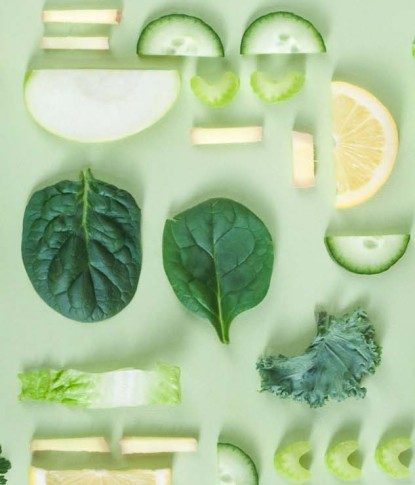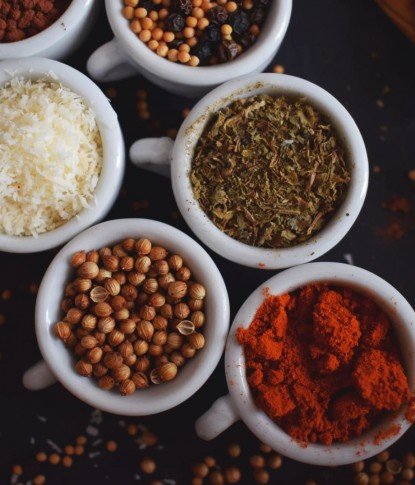
Embarrassing skin blemishes can affect anyone. It’s not just the reserve of boys going through puberty. While acne is not a serious health threat, it is significant in an emotional and social sense. If you have acne, you often have less self-confidence, and this can affect your social life or even your productivity at work.
Want to know the best vitamins to take for your skin? Take our free consultation to find out.
Breakouts of this inflammatory skin condition can occur at any time of life but 85% of sufferers are between the ages of 12 and 24. Certain vitamins can help reduce the severity of outbreaks and help put a stop to acne.
Finding the cause of the problem
There can be a number of reasons that a person suffers from acne. Finding the root cause can highlight which vitamins are best to help with acne, and a number of internal factors can be present such as hormonal imbalances, faults in digestion, chronic infections and suppressed immunity[1].
Stress and acne can become a vicious circle. When our bodies feel stress, our adrenal glands respond by producing more of the stress hormone cortisol. This causes the oil glands in the skin to produce more sebum, which can raise the risk of skin infection and pimples. More skin outbreaks and pimples cause more stress, adding to the cycle.
The Vive Wellness online consultation can help identify the areas of your health that need supporting and make recommendations for the best vitamins to improve your acne symptoms.
Vitamins for acne
- Vitamin A – Vitamin A is an antioxidant that can help neutralise the free radicals that can damage your skin[2]. It helps condition the skin and with the healing of outbreaks.
- Probiotics – Good bacteria in the digestive system help ensure a healthy gut lining which can lower inflammation in the body. The health of the skin is often a reflection of how healthy the gut is. Taking probiotics can boost immunity and lower inflammation in the body[3].
- Zinc – Research says that people with acne tend to be deficient in zinc. Zinc has antibacterial and anti-inflammatory properties that may be beneficial in reducing acne[4]. Vegetarian and vegan diets can be low in zinc.
- Omega-3 fatty acids – Omega-3 fatty acids contain EPA and DHA. EPA has anti-inflammatory properties and has been shown to sooth the inflammatory response associated with acne. It also helps regulate the hormone testosterone which triggers the over production of sebum, which can raise the risk of skin infections and outbreaks[5].
- Vitamin E – Vitamin E has antioxidant and anti-inflammatory properties. Vitamin E helps optimise the immune system and helps with cell regeneration[6].
- Vitamin D – Vitamin D plays an important role in the immune system. It helps modulate the immune system and can help reduce inflammation in the skin. Research has found that sufferers of acne can be deficient in vitamin D[7].
Since Acne is a complex multifactorial condition, it’s important to discover whether there are any underlying nutritional deficiencies or other factors that are causing the condition. The Vive Wellness online consultation is designed to identify any of these deficiencies or factors in order to tailor-make a protocol that is unique and targeted.
Find out what vitamins can improve your acne
It only takes 5 minutes to learn what vitamins you really need (and which you don’t)
FAQ on vitamins & acne
Because oily fish contains omega-3 fatty acids it has the opposite effect by calming skin inflammation and regulating hormones in the body.
Not all, but some vegan and vegetarian diets can be low in zinc. Low zinc status is associated with a greater risk of acne.
During winter months we can become deficient in vitamin D, because we naturally make it from exposure to sunlight. Vitamin D is needed for the proper functioning of the immune system and helps regulate skin inflammation.
The condition of your skin can be a mirror for the health of your digestive system. Probiotics can support immunity and lower inflammation in the body.
Stress hormones causes the skin to produce more sebum which raises the risk of skin infection and outbreaks.
References
[1] Lee, Byun and Kim, 2019. Potential Role of the Microbiome in Acne: A Comprehensive Review. Journal of Clinical Medicine, 8(7), p.987.
[2] Agak, G., Qin, M., Nobe, J., Kim, M., Krutzik, S., Tristan, G., Elashoff, D., Garbán, H. and Kim, J., 2014. Propionibacterium acnes Induces an IL-17 Response in Acne Vulgaris that Is Regulated by Vitamin A and Vitamin D. Journal of Investigative Dermatology, 134(2), pp.366-373.
[3] Fuchs-Tarlovsky, V., Marquez-Barba, M. and Sriram, K., 2016. Probiotics in dermatologic practice. Nutrition, 32(3), pp.289-295.
[4] Cervantes, J., Eber, A., Perper, M., Nascimento, V., Nouri, K. and Keri, J., 2017. The role of zinc in the treatment of acne: A review of the literature. Dermatologic Therapy, 31(1), p.e12576.
[5] Jung, J., Kwon, H., Hong, J., Yoon, J., Park, M., Jang, M. and Suh, D., 2014. Effect of Dietary Supplementation with Omega-3 Fatty Acid and Gamma-linolenic Acid on Acne Vulgaris: A Randomised, Double-blind, Controlled Trial. Acta Dermato Venereologica, 94(5), pp.521-525.
[6] Chan, H., Chan, G., Santos, J., Dee, K. and Co, J., 2017. A randomized, double-blind, placebo-controlled trial to determine the efficacy and safety of lactoferrin with vitamin E and zinc as an oral therapy for mild to moderate acne vulgaris. International Journal of Dermatology, 56(6), pp.686-690.
[7] Lim, S., Ha, J., Lee, Y., Lee, Y., Seo, Y., Kim, C., Lee, J. and Im, M., 2016. Comparison of Vitamin D Levels in Patients with and without Acne: A Case-Control Study Combined with a Randomized Controlled Trial. PLOS ONE, 11(8), p.e0161162.
Tags: acne




